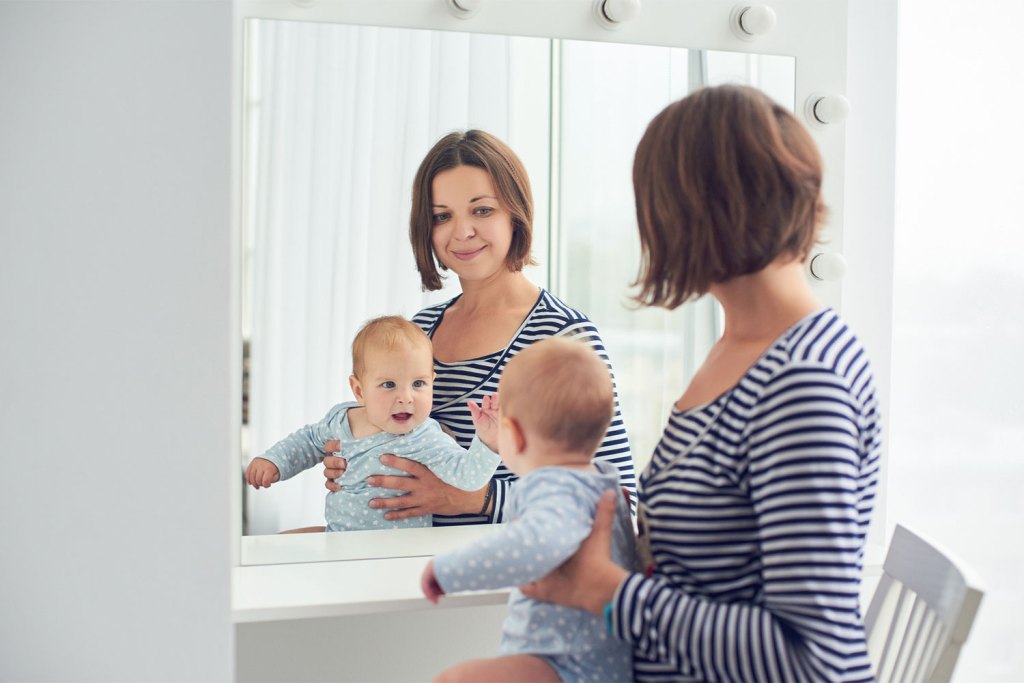Many mothers buy post-maternity shapewear to find support after birth. They sometimes help your body find their pre-birth shape. Moreover, shapewear helps make you feel more confident during the postpartum phase. Others feel that post-maternity shapewear promotes unrealistic expectations for mothers, and may encourage other health problems with their use. Here are a few basics regarding postpartum shapewear, as well as some important factors you should consider before buying one… or more.
What types of shapewear are available?
There are different types of shapewear available. Depending on where you need support, the type of shapewear you need will vary.
- Some claim that waist bands help your uterus contract faster postpartum. Waist bands also help loose skin around the stomach regain their shape. Other names for waist bands are belly bands, belly wraps, belly belts, or girdles.
- Tummy-control underwear are high-waisted panties that keep your stomach in without being as constricting as waist bands. They can be worn with any outfit as opposed to a bulky belly belt.
- Shapewear shorts extend all the way from your thighs to above your waist. These are popular for wearing dresses or other form-fitting clothes. They provide wider coverage than either underwear or waist bands.
- A bodysuit is similar to a one-piece bikini. These are ideal if you’re looking for full-body support to give you the shape you’re looking for.
- Tank top shapers come with a built-in bra and a compressed build to give your upper body support.
One important thing to remember is post-maternity shapewear should be made of medical-grade compression fabrics for maximum safety.
Pro: Shapewear gives you support
Many women find that shapewear gives them much-needed support after pregnancy. Besides aesthetic reasons, women with certain conditions might benefit best from shapewear.
For instance, nearly two out of three women experience diastasis recti during pregnancy. In this condition, your ab muscles separate, and your core loses its shape. After you give birth, you might notice you have a “pouch” or loose skin around your stomach.
This is all very common, and post-maternity shapewear can help you solve the issue safely. Correct form during exercise and breathing exercises help people with diastasis recti regain strength in their core. These exercises also restore shape to their abs. Additionally, you may use a belly wrap to help guide your ab muscles back together.

Luckily, there are belly wraps made specifically for women with diastasis recti. Comfortable and adjustable belly bands are ideal for postpartum use. Your body is still healing months after you gave birth, so you want to use a belly wrap that treats your body gently.
Beyond diastasis recti, your organs are still finding their way back to their original spots after your body made room for your growing baby. So your insides might feel off because your organs are moving around. In this case, a belly wrap, tummy control underwear, tank top, or shorts can all give you the support you need.
Pro: Waist bands help your C-section scar heal
If you had a C-section, the wrap can help your incision heal by relieving pressure off it. The band also acts as a barrier between your clothes and your scar, which helps it heal quicker.
Note that if you have a relatively raw incision or if it seems like your skin is fighting an infection, it’s best to avoid shapewear that touches your skin.
Additionally, swelling after a C-section may also go down when you wear a belly wrap. This is because of the gentle pressure from the wrap that’s made of medical-grade compression fabric.
Pro: Shapewear helps you recover more quickly
Waist bands help whether or not you gave birth via C-section. Belly wraps help reduce cramping and tighten stomach skin. They also give support to your back and organs, which are overworked from nine months of pregnancy.

In your third trimester, you likely changed your posture to accommodate the added weight in your stomach. Shapewear like belly bands reminds you to keep your back straight. This prevents future back pain and spine misalignment. By aligning your back, you’re also helping your organs find their places.
Con: You may end up depending on shapewear
If you use a belly band to give you upper body support all day every day, your body may end up depending on it completely. This might weaken your core in the long term because your body gets used to the support.
Instead of wearing shapers all day, use them for several hours at a time. You may opt to use them for when you go out or for special occasions. On top of wearing shapewear, ensure a healthy diet and doctor-approved exercise.
Con: Shapewear may be too constricting
Ideally, shapewear should fit snugly but not tightly. Too much pressure reduces circulation and doesn’t let you breathe. Make sure your shapewear fits comfortably to avoid these issues.
If you opt for a shapewear tank, make sure to purchase one that’s specifically made for postpartum. It should accommodate for larger areas like the bust for a comfortable fit.
When do you wear shapewear?
You can wear shapewear right away after birth. For belly bands, most moms use it for up to six weeks postpartum. You can then move onto waist trainers if you wish to continue belly binding beyond the immediate postpartum period.
Any shapewear can be worn several hours a day or night, but double-check your manufacturer’s information just in case. Some bands are specifically designed to be worn all day/night. If the shapewear is uncomfortable, it might be too tight, or you may have purchased an incorrect size.
Shapewear is helpful for supports for postpartum. When our bodies feel loose or unstable, shapewear like belly wraps give us the courage we need to find our new normal after birth. If you have diastasis recti or are experiencing back pain, belly bands may be right for you. If you’re looking for a little aesthetic support to help you find confidence after birth, shapewear may be right for you. Otherwise, shapewear just a nice-to-have that you can easily pass on.


